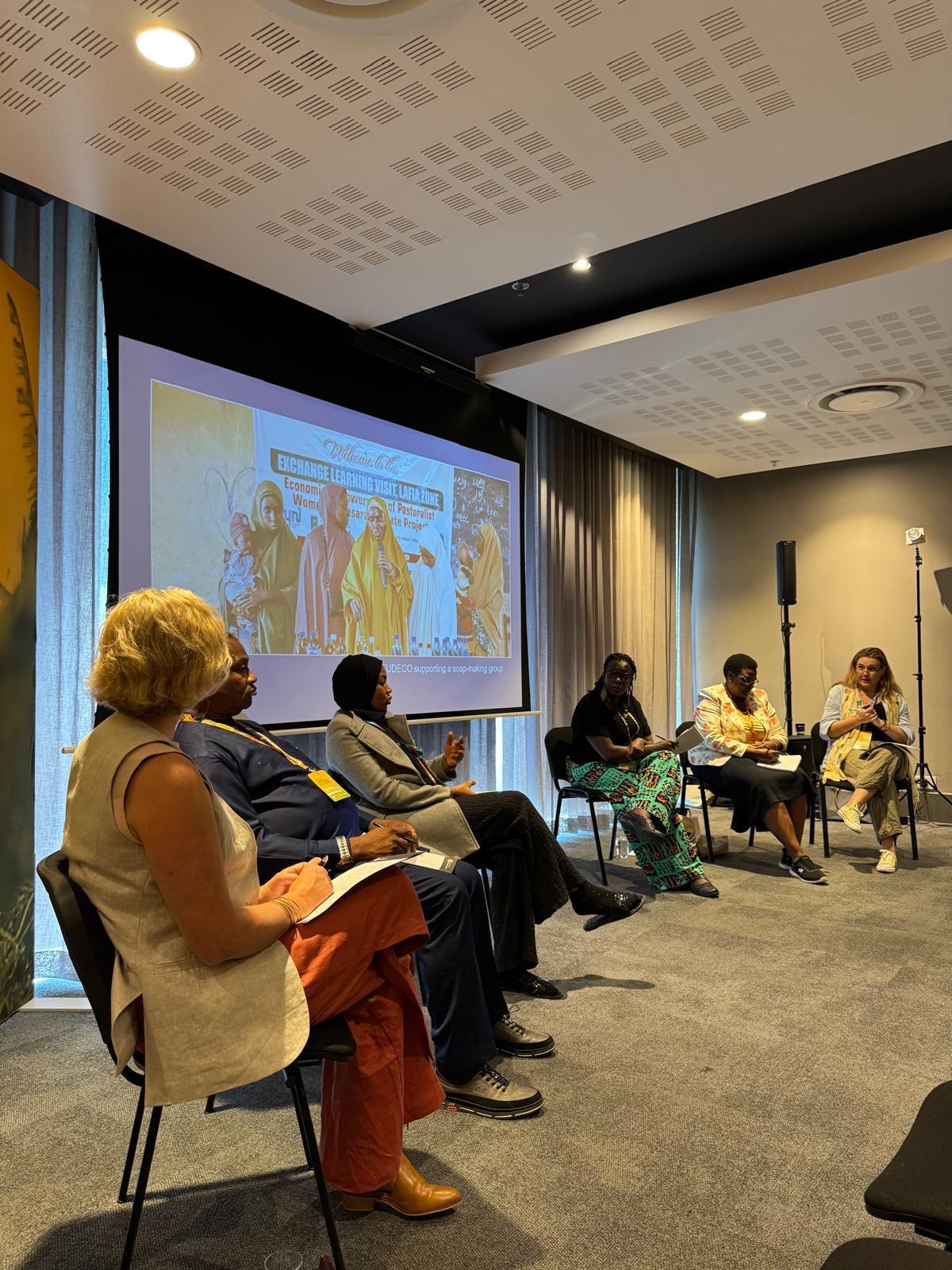Panel
SPARC insights for shifting social norms to enhance resource access and resilience in drylands
SPARC shared evidence from Nigeria, Somaliland and South Sudan on ways to shift social and cultural norms in conflict and climate-change affected pastoralist dryland communities.
Event date and time - 1:30pm SAST
At the CGIAR Gender Equality and Inclusion Conference 2025 in Cape Town, South Africa, SPARC researchers shared evidence on ways to shift social and cultural norms in conflict and climate-change affected pastoralist communities in drylands. The theme of this year's conference was 'Accelerating Equality in Food, Land, and Water Systems,' and underscored the urgent need to address gender disparities as we approach the 2030 Agenda for Sustainable Development.
As part of an interactive panel discussion, from 1.30pm to 3pm local time on Thursday, October 9 in Room 9, researchers drew on recent SPARC and SPARC-International Development Research Centre (IDRC) evidence from different agri-food systems in Nigeria, Somaliland and South Sudan to share lessons on ways to enhance equitable and socially inclusive resource access, resilience and participation in decision-making.
The in-person event, under Theme 1 of the conference, ‘Shifting gender and social norms to enhance access, participation, and resilience for women, youth, and socially excluded groups in agri-food systems’, comes as policymakers, investors and practitioners prepare for the International Year of the Woman Farmer 2026. The panel explored questions such as:
- What normative barriers most strongly persist to strengthening gender equality?
- How do pastoralist men understand the wider benefits of Gender Transformative Approaches (GTAs)?
- How should gender equality policies be tailored for pastoralist contexts?
- How do moments of disruption enable GTAs to effectively take off?
The panel was chaired by:
- Dr Elizabeth Daley, SPARC Gender Equity and Social Inclusion (GESI) Advisor. Elizabeth has worked as an independent consultant on gender equity and social inclusion (GESI) in relation to land and natural resources for over 20 years, including substantial work in pastoralist settings since 2015.
With researchers:
- Dr Pacificah Okemwa, a lecturer at Kenyatta University, Kenya, and Gender Lead in the ‘Building Gender Responsive Climate Resilient Communities (GECRESS)’ project that works with the Dinka people in Bor, Jonglei State, South Sudan’. Pacificah will focus on ‘Women’s indigenous knowledge and food systems in fragile agri-food systems: A case of the Dinka, in Bor, South Sudan’.
- Dr Renee Bullock, a senior scientist at SPARC member organisation the International Livestock Research Institute (ILRI), specialises in social inclusion, gender and climate adaptation. She has over 10 years’ experience working in Africa and has led and supported the design and implementation of responsive and transformative projects in mixed crop livestock and drylands systems.
- Ms Milcah Asamba, SPARC innovations research manager, comes from a market research background. She has more than 15 years of experience in marketing and social research projects in East Africa and has a keen interest in the role of end users in the innovation process. She is passionate about research that focuses on livelihoods, gender, women empowerment, nutrition, and climate.
- Ms Jamila Hassan, an advocate for women’s empowerment and girl-child education in northeast Nigeria, has more than a decade of experience in the humanitarian field. She has partnered with local and international organisations to implement development projects. Jamila is a member of the Global Leadership School of Indigenous Women under the International Indigenous Women’s Forum (FIMI) and was Gender Lead for the Fulbe Development and Cultural Organization (FUDECO) during its SPARC-IDRC Gender Equity and Social Inclusion (GESI) research project.
- Dr Johnson Egbemudia Dudu, a researcher at the Centre for Population and Environmental Development (CPED), Nigeria, which was a member of the SPARC- IDRC GESI research project. Johnson is coordinator of CPED's research and interventions in northeast Nigeria. His areas of interest include action research, community engagement strategies, and gender transformative methods and research interventions.
Find out more here.
